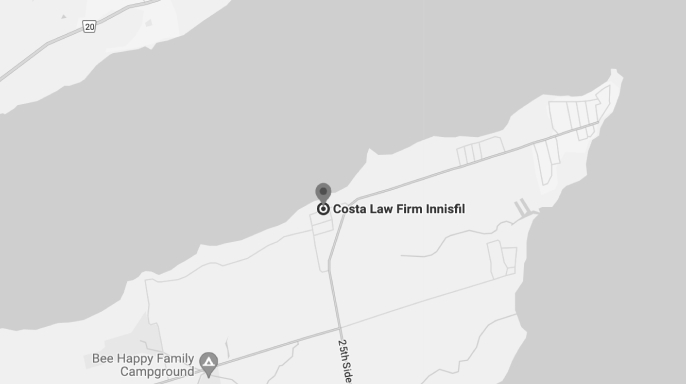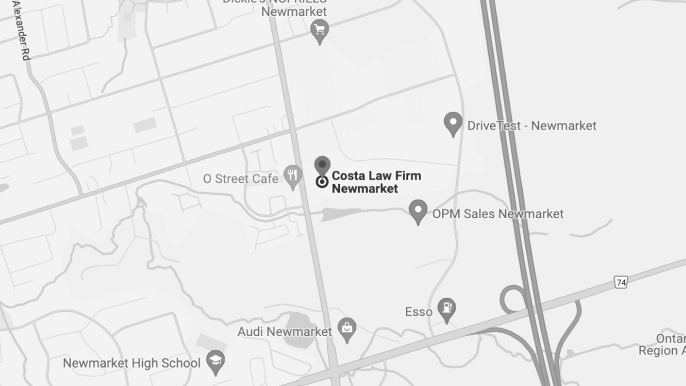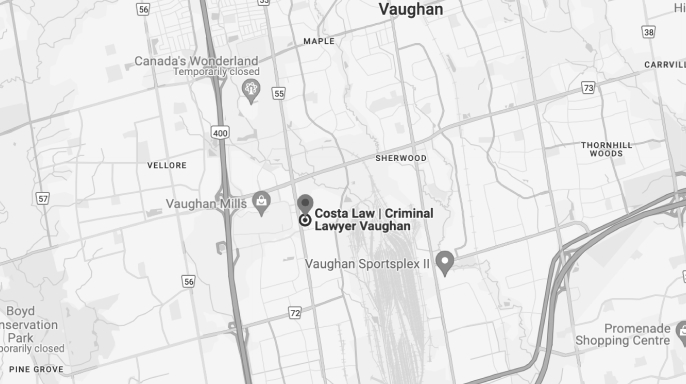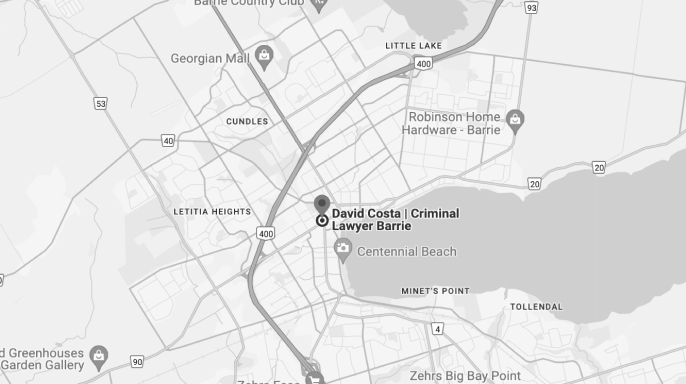You can count on us for legal representation
What Is a Charge of Theft?
In the Criminal Code, theft is a form of property offence that can come with severe penalties. In essence, it is taking something that does not belong to you without the permission of the owner of the property for your benefit or the benefit of another party.
The precise timing of when an act of theft is complete is also worth noting. According to the Criminal Code, theft is complete only when a person moves the object or item. After they have begun the action of moving the item, they do not need to have completed taking the item for it to be labeled theft.
Theft cases are handled by the Ontario Superior Court.
Who Commits Theft in Toronto?
Anyone can commit theft. Every year, there are more than 37,000 incidents of theft in Toronto alone.
In many cases, these are employees or workers, such as nurses, doctors, pharmacists, accountants, teachers, financial service workers, and government employees.
Routinely, law-abiding citizens, students, and Canadian immigrants are accused of theft. In many cases, it is an honest mistake or a false accusation, with individuals held for hours by store security and/or physically mistreated in an effort to obtain a confession.
A strong legal defence may be the only thing that prevents a conviction and protects a person’s license, immigration status, and job security.
How to Prove the Offence and Secure a Theft Conviction
To prove theft, the Crown attorney must argue that the accused had an intent to steal, in addition to demonstrating that they moved the item in question or caused it to move. If the intent to steal is not clear, whether it is with retail theft or more serious fraud charges, it is incredibly difficult to secure a theft conviction.
Types of Theft
Theft can occur from stores and retailers. There is also theft from private citizens.
A subcategory of theft is shoplifting which can occur impulsively or compulsively. These types of charges in Ontario are taken less seriously than other felonies.
There are also large-scale white-collar fraud schemes with far more serious convictions attached.
Fraud is sometimes referred to as theft; however, in the legal process, it carries a slightly different definition. Theft relates to a person’s property, has an item involved, and requires movement of said item. Fraud, by comparison, is to knowingly trick or deceive another person for money or other goods and services.
What Happens If You Are Found Guilty of Theft Charges
Under the Criminal Code of Canada, theft convictions fall into two categories – theft under $5,000 and theft over $5,000.
- A theft under $5,000 carries a maximum sentence of up to two years in prison in a summary conviction.
- A theft over $5,000 can have a maximum sentence of up to ten years in prison.
Theft under $5,000 is considered a minor criminal offence. It is committed by Canadians of all ages and backgrounds. Even so, a criminal charge still creates a record that you do not want associated with your name.
Theft over $5,000 is considered an indictable offence. In other words, as an indictable offence, this is where theft becomes a serious crime under the guidelines of the Criminal Code of Canada.
What happens with a guilty verdict is dependent on the type of theft that was done. Shoplifting is not treated the same way as an offence, such as motor vehicle theft or corporate fraud. If there was a breach of trust involved, such as stealing funds from a corporate bank account or property offences against an employer, this is almost sure to carry a jail sentence.
Why Hire a Defence Lawyer to Represent You in Ontario Court
If you have criminal charges and theft-related offences being thrown at you, a defence lawyer is essential to fighting back.
Not only will an experienced theft lawyer in Toronto assist with filing your defence but should your case proceed to trial, we can argue for your acquittal and pursue the defence most likely to overcome the criminal charge against you.
Criminal law requires guilt to be proven beyond a reasonable doubt. In some cases, the evidence submitted against an accused is weak, the seriousness of the criminal charges is low, or full restitution has been made by the accused.
A lawyer will use what is available to them depending on your unique circumstances to ensure your Charter rights are protected and that any potential sentence is as minimal as possible.
How to Defend Shoplifting And Theft Under $5,000 Charges
The theft of goods and services under $5,000 can lead to a robbery conviction, establishing a criminal record that could negatively impact you for years to come. It may affect your career prospects, ability to travel outside the country, and more.
In some cases, it may be possible to argue the accused made a mistake and that they overlooked paying for an item. This is sometimes referred to as the lack of intent defence, stating that the accused did not intend to deprive the rightful owner of their property and that it was an honest mistake. In this example, the accused may opt to plead not guilty.
Another common defence is to argue the colour of right, meaning that an individual may genuinely believe they have the right to a piece of property. In this, they did not intend to steal or deprive anyone of the property as they were under the honest but mistaken belief that they had ownership.
In other cases, we may argue the prosecution should be halted and criminal charges withdrawn for a wide range of reasons. This avoids the expense and emotional trauma of going to trial or facing a criminal conviction.
A criminal lawyer specializing in theft and shoplifting can assist you in keeping your criminal record clean.
Acknowledging the Evidence Brought Forth by the Prosecution
As mentioned, the prosecution must prove beyond a reasonable doubt that the accused stole property.
To do this, there is a lot of evidence they may bring forth that a lawyer will have to contend with in order to defend the accused against such a crime. Police reports and police investigations could prove to be essential in contextualizing an incident of theft. If you have stolen from a retailer, they may have fingerprints, photos, and video surveillance to support their claims.
A lawyer for the accused must be able to defend against this evidence and work in your best interest.
Negative Impacts of a Theft Charge
Being convicted of theft can make your life harder in a number of ways.
If you ever find yourself having to look for work, you will discover it is far more difficult to secure employment with a criminal record indicating theft.
If you are a non-resident looking to become a Canadian citizen, even a summary conviction can create difficulties.
Furthermore, any person who becomes aware of such a conviction may develop a negative opinion about you, damaging your reputation in their eyes and affecting every aspect of your life, from romantic relationships to how you are treated in your neighbourhood.
Having Your Theft Charge Diverted
Every courthouse in Ontario offers a diversion program wherein, under criminal law, theft can be diverted.
Eligibility is determined by the office of the Crown prosecutor. If the offence is minor, they may approve the diversion. If a person, however, has had prior dealings with the police, pursuing a diversion program is unlikely in a theft case.
If you are accepted into the diversion program, you may be asked to complete different tasks, such as watching a video on theft, making a charity donation, or completing a minimum number of community service hours. Should these conditions be fulfilled, the accused maintains a clean criminal record without a conviction.
That said, if found guilty of a crime that includes a breach of trust, such as stealing from an employer, it is unlikely one will be eligible for the diversion program.
How Restitution Orders Work With a Theft Conviction
The court has the right to make a restitution order if an offender is convicted or discharged with theft.
A restitution order is entered at sentencing and requires the offender to pay a sum of money to the victim. Before sentencing is imposed, typically the court will ask the Crown if the victim has sought restitution. It must be a reasonable amount to request.
Please note that if the court accepts a restitution order and an offender refuses to pay, they can be sued in civil court for the amount.
This is another consequence of what can happen if you are convicted of theft.
Hire a Theft Defence Lawyer in Toronto at Costa Law Firm
Protect your reputation. Avoid the ripple effects that theft charges bring to future employment prospects.
If you or someone you know is being accused of theft, a lawyer can advise on whether to pursue a diversion program or how to move forward to ensure your case is given its best chance of success.
Get in touch with the legal team at Costa Law Firm for a free consultation. Whether this is your first time or a repeat offence, we can aid you with navigating the criminal justice system and submitting the strongest defence possible.
FREE Case Evaluation
or Call Us: (416) 535-6329
What our clients are saying
Testimonials
Contact Us
FREE Case Evaluation
or Call Us: (416) 535-6329
Costa Law Firm
Costa Law Firm is a law firm located in Toronto with exceptional credentials that stands out for its commitment to client service. Our service minded approach has led Costa Law Firm to be one of the most reliable law firms in Toronto.
Address
Main Office:
1015 Bloor Street West, Toronto, Ontario M6H 1M1
Phone: (416) 535-6329
Fax: 416-535-4735
info@costalawfirm.ca
We provide emergency services for urgent matters.
Consultation Office:
17075 Leslie St Unit 6, Newmarket, ON L3Y 8E1Vaughan location 290 Caldari Rd Unit 8, Concord, ON L4K 4J4, CanadaBarrie location 49 High St 3rd floor, Barrie, ON L4N 5J4, Canada














